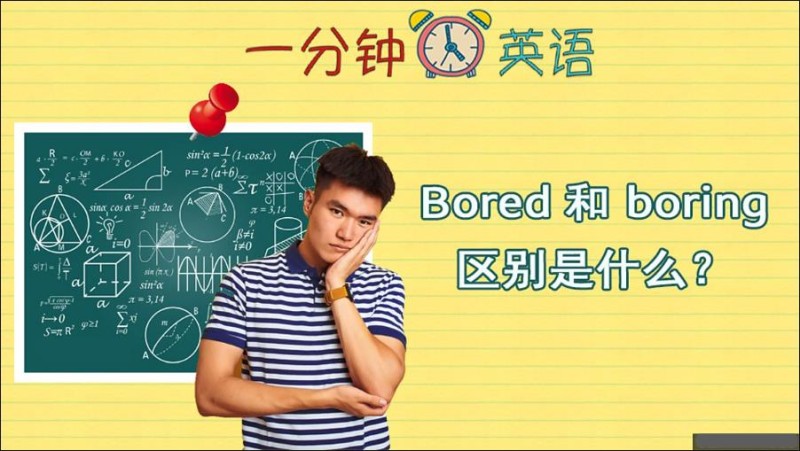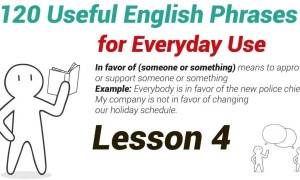内容简介
英语中有很多词根相同但词尾结构却不同的形容词。比如:“interested” 和 “interesting”; “excited” 和 “exciting”;“relaxed” 和 “relaxing”。在每一对形容词中,以 “-ed” 和 “-ing” 结尾的词语的含义之间有无规律可循?这两个词尾分别起什么作用?“一分钟英语” 通过单词 “bored” 和 “boring” 来辨析哪个词尾修饰 “人的内在感受”,而哪个则修饰 “事物带来的感受”。
文字稿
Hello! I’m Sam from BBC Learning English. And, this is me in class…
How am I feeling? Bored or boring?
I was feeling bored because the lesson was boring.
So the lesson was the reason I felt bored.
So –ed endings describe the feeling and -ing endings describe the reason you have that feeling.
And this works with other adjectives too! So, if the lesson is interesting, I feel interested.
If something is tiring, I’m tired.

If something is relaxing, I’m relaxed.
If something is surprising, I’m surprised.
If something is exciting, I’m excited.
So, tell us how these videos make you feel!
用法总结
1 “Bored” 形容人 “感到无聊”;而 “boring” 形容事物是 “令人感觉无聊的”。某物很 “boring” 是人感觉 “bored” 的原因。
I was feeling bored because the lesson was boring.
2 以 “-ed” 结尾的形容词用来表达人的内在感受;而以 “-ing” 结尾的形容词描述人产生这种感受的原因。这个规律适用于许多形容词。
If the lesson is interesting, I feel interested.
If something is tiring, I’m tired.
If something is relaxing, I’m relaxed.
If something is surprising, I’m surprised.
If something is exciting, I’m excited.







